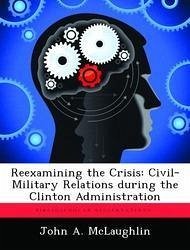Civil-military relations during President William J. Clinton's administration are often credited as being the least harmonious of any American president. It was frequently asserted that civil-military relations during the Clinton administration became so strained and mired in conflict that civilian control of the military had reached a point of "crisis." These claims were frequently substantiated with allegations that the military had become increasingly alienated from the society which it is to serve and protect. Many cited that the military had abandoned its political neutrality and became actively involved in partisan politics. Most significant were claims that the senior military leadership had become increasingly influential in dictating national policies. These elements seemed to indicate that there was a fundamental change within civil-military relations and that the civilian leadership was leading an insubordinate military. The ability and willingness for the military to render political opposition against its civilian masters, act contemptuously against the president, or dictate national policy certainly calls into question the effectiveness of civilian control over the military. Though it may be tempting to regard this loss of civilian control as a result of military animosity against Clinton, the issue was much more complex. While clashing personalities undoubtedly were a factor, the problem was more deeply rooted. This monograph poses the question of how did civil-military relations change prior to and during the Clinton administration to convince many observers that American civilian control had declined to a point of crisis? This monograph argues that the primary cause for the perceived decline in civilian control during the Clinton administration was the absence of relevant civil-military relation models which addressed the delineation of labor between civilian and military leaders in the post-Cold War environment. In effort to assess why a crisis wa
Hinweis: Dieser Artikel kann nur an eine deutsche Lieferadresse ausgeliefert werden.
Hinweis: Dieser Artikel kann nur an eine deutsche Lieferadresse ausgeliefert werden.








